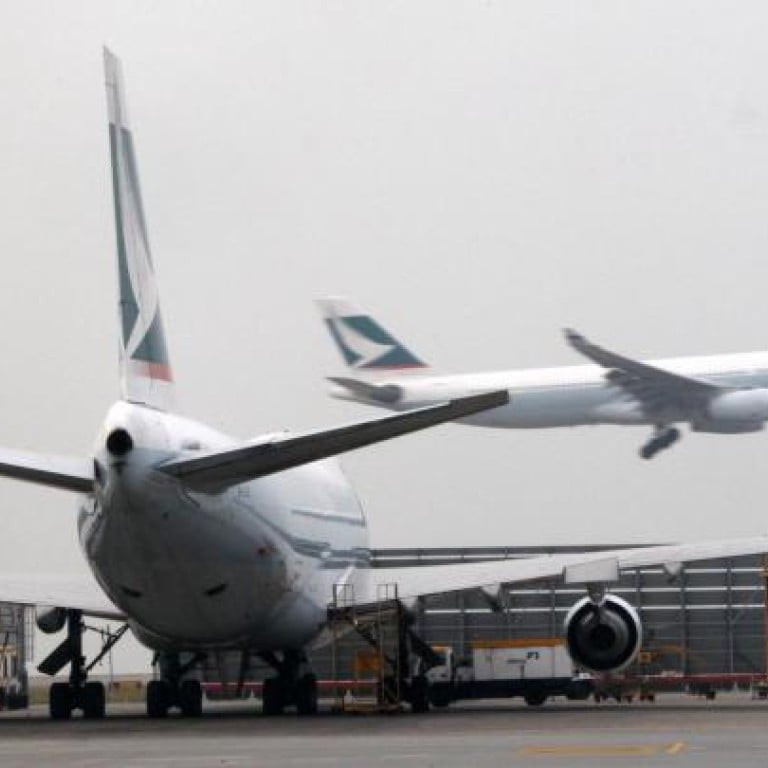
Costs mount up to 'difficult year' for Cathay Pacific Airways
Analyst forecasts a profitable second half but a 90 per cent drop in full-year net profit for airline
Higher fuel and other operating costs, coupled with lower passenger and cargo yields, had combined "to make 2012 a difficult year" for Cathay Pacific Airways, the carrier's chief executive said yesterday.
John Slosar said fuel costs alone were about 6 per cent higher than budget, while other costs - including airport, overflight, catering, landing and parking charges and passenger costs - had risen.
Chief operating officer Ivan Chu Kwok-leung was leading efforts to tackle the airline's cost base, Slosar said.
At the same, passenger and cargo loads had fallen this year, while average fares in the premium and economy classes were also lower, Slosar wrote in the airline's newspaper, .
He gave no full-year profit forecast but said this combination of factors meant the "the result is a very challenging year".
Patrick Xu, the aviation analyst at Barclays in Hong Kong, forecast a 90 per cent drop in Cathay's net profit to HK$563 million for the full year, down from HK$5.5 billion last year. Xu thought the carrier would be profitable in the second half, with a net profit of HK$1.49 billion, compared with a HK$935 million net loss in the first half.
Total revenue was forecast to slide from HK$98.4 billion last year to HK$87.2 billion this year, Xu estimated.
He said next year would be equally challenging for Cathay.
"We don't expect demand growth to rebound so strongly and in such a short period of time as to lift the profitability materially in 2013, and therefore, we continue to see a depressed 2013 for the company," Xu said.
Slosar said fuel now accounted for 62.5 per cent of the total costs on a single Boeing 747 flight to London, compared with 47.9 per cent in 2010.
He said the airline had limited options to tackle high fuel costs.
While Cathay hedged part of its fuel costs by awarding forward supply contracts at fixed prices, Slosar said fuel hedging "was not a miracle solution, offering some protection, but it doesn't remove all of the risk".
He said it was "extremely difficult … in the current weak economic environment" to increase ticket prices to offset the higher fuel bills, while fuel surcharges recovered only about half the extra fuel cost.
Instead, Slosar said, the airline was being "aggressive" in retiring its Boeing 747-400s more quickly and replacing them with Boeing 777-300ERs that are more than 20 per cent more fuel-efficient overall than the 747s.
"As we move into 2013 and take delivery of more 777-300ERs, we'll see an even bigger benefit, but the full benefit will not be realised until 2014," he said. Slosar said a weaker global economy had affected the carrier's cargo business.
"Overall cargo revenue this year is lower than 2011 by around 13 per cent," he said. This is equivalent to a drop in cargo revenue of HK$3.37 billion against total cargo turnover last year of HK$25.98 billion.
Slosar said the downturn in the world economy has reduced passenger demand.
"Our top corporate customers in the financial industry are travelling more than 15 per cent less than they did the previous two years," he said.
Average ticket prices had also declined, falling 4 per cent from last year for economy class.
